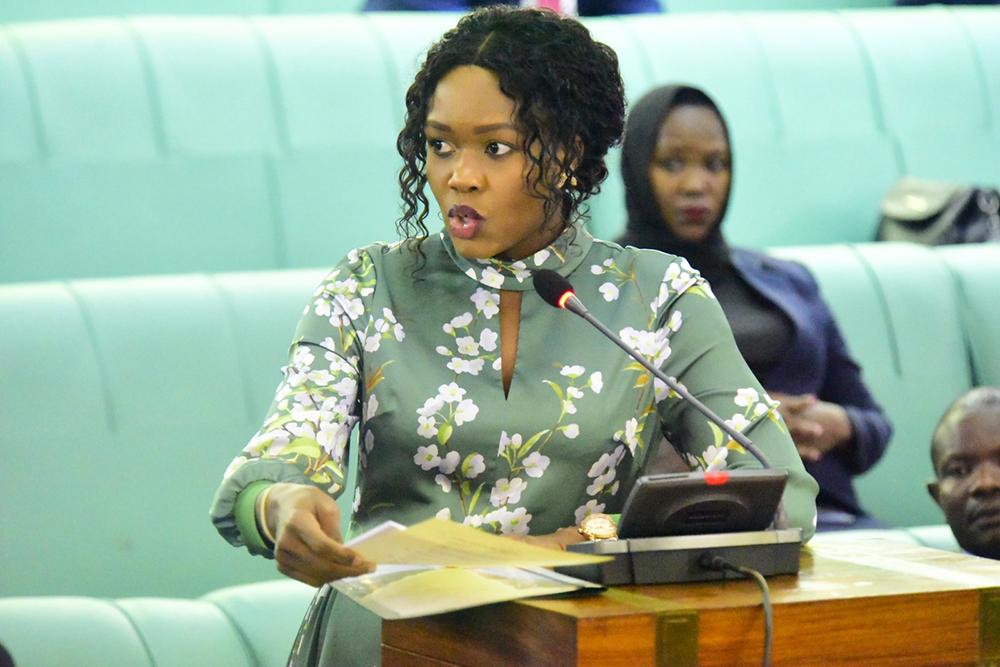(Kampala) – Uganda’s Parliament has been presented with the Sexual Offences Bill 2024, which proposes stricter penalties for sharing explicit content without consent and includes up to five years in prison for those who share sexually explicit materials of others.
Soroti District MP Anne Ebaju Adeke introduced the Bill, aiming to create a unified legal framework for handling sexual crimes and consolidating several existing laws into a single comprehensive piece of legislation. Key provisions target the distribution of explicit images, videos, and recordings without consent, with severe penalties for offenders, who could face up to five years in prison.
Clause 7 of the Bill makes it a criminal offence to share, record, or publish explicit material without consent, covering both digital and physical formats. This includes non-consensual recordings or photos of individuals in private situations, with or without the use of artificial intelligence to manipulate or generate images. Violators of these provisions may be fined up to 10 million Ugandan shillings or face imprisonment for up to five years, or both.
| Proposed Penalties for Non-Consensual Explicit Content Sharing | Penalty |
|---|---|
| Basic offence (without consent) | Up to 5 years in prison |
| Aggravated offence (e.g., against minors or former partners) | Up to 10 years in prison |
The Bill specifies more serious consequences, or aggravated offences, for cases involving the sharing of explicit content targeting current or former partners, minors, or in situations intended to incite harm, harassment, or blackmail. In such cases, penalties increase, with offenders facing up to 10 years in prison.
Currently, many of these offences fall under the Computer Misuse Act 2011, which imposes lighter penalties, including up to three years in prison or fines. The Computer Misuse (Amendment) Act of 2022 strengthened these penalties, raising fines to 15 million shillings and potential imprisonment up to seven years. The proposed Bill would extend these protections specifically to sexual offences and more clearly define what constitutes illegal material.
The Bill also seeks to reintroduce certain provisions that were passed in the 10th Parliament but not enacted, such as punishments for indecent exposure. Clause 6 makes it illegal for individuals to expose themselves in public or online, with offenders facing up to three years in prison. Notably, the offence applies even when the explicit material is digitally altered, including AI-generated images. Exposure offenses committed in the presence of a spouse, family member, or child may lead to up to five years in prison. Exemptions include cultural or customary events, infant breastfeeding, and medical practices.
One of the most serious proposals in the Bill is a death penalty for aggravated rape. Clause 3 defines this form of rape as cases involving serial offenders, victims who are elderly or disabled, or cases in which the offender knowingly has a sexually transmissible infection. If convicted, offenders face the death penalty. The Bill also covers instances where the offender abuses authority or commits the act in the presence of others.
Among other proposed changes, the Bill calls for a national Sex Offenders’ Register, to be managed by the National Identification and Registration Authority, tracking those convicted of sexual crimes to protect vulnerable groups, especially children, from potential repeat offenders.
| Offence Category | Maximum Penalty |
|---|---|
| Non-consensual sharing of explicit media | 5 years |
| Aggravated non-consensual sharing | 10 years |
| Indecent exposure | 3 years |
| Aggravated rape | Death penalty |
During parliamentary discussions, Attorney General Kiryowa Kiwanuka raised concerns that some clauses in the Bill might duplicate existing laws, like the Computer Misuse and Pornography Acts, both of which criminalize non-consensual sharing of sexual images. Kiwanuka also noted that additional funding might be required to implement the Bill effectively.
Despite these concerns, MP Adeke argued that a consolidated legal framework is essential to address gaps in Uganda’s current laws on sexual offences, pointing to successful similar reforms in countries like Kenya and the United Kingdom. Human rights lawyer Peninah Kwagala supported aspects of the Bill but recommended that amendments to the Penal Code Act could be a simpler solution to fill these gaps. She also voiced concerns about potential privacy and enforcement challenges.
Grace Lwanga, CEO of the Chapter for Empowerment and Rights Uganda (CERU), underscored the importance of aligning the Bill’s provisions with Uganda’s social and cultural context to effectively tackle sexual violence. Additional clauses address sexual assault and indecent gestures, proposing up to three years in prison for intentional acts like inappropriate touching or gestures involving private body parts.
Clause 5 also makes engaging in sexual acts with sex workers illegal, with a two year prison term upon conviction.
The Bill has now been referred to the Committee on Legal and Parliamentary Affairs and the Committee on Gender, Labour, and Social Development for further review, with a report expected within 45 days. Parliament will consider the Committee’s findings before moving forward with any amendments or passing the Bill into law.




















